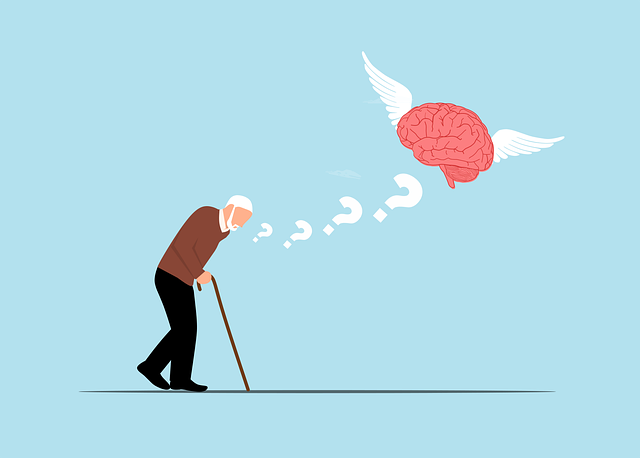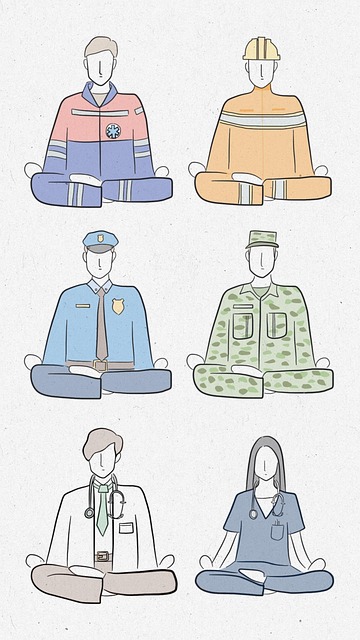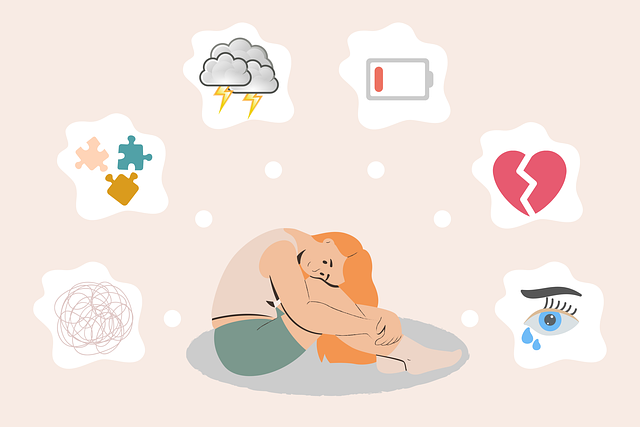Mindfulness meditation offers a powerful therapy for elderly terminal patients, providing them with tools to navigate their end-of-life journey with grace and peace. This article delves into the transformative benefits of mindfulness for easing emotional turmoil, improving quality of life, and fostering a sense of calm acceptance. We explore practical steps for beginners, strategies to overcome challenges specific to elder meditation practices, and methods to integrate mindfulness into daily routines for a peaceful transition.
- Understanding Mindfulness Meditation for Elderly Terminal Patients
- Benefits of Meditation as a Therapy for End-of-Life Care
- Practical Steps to Begin a Mindful Meditation Practice
- Overcoming Challenges and Common Obstacles in Elder Meditations
- Integrating Mindfulness into Daily Routines for Peaceful Passing
Understanding Mindfulness Meditation for Elderly Terminal Patients

Mindfulness meditation has gained recognition as a powerful therapy for elderly terminal illness patients. It involves focusing one’s attention on the present moment, acknowledging and accepting thoughts and feelings without judgment. For elders facing the challenges of a terminal condition, mindfulness offers a unique approach to navigate emotional turmoil and enhance overall well-being. Through simple breathing exercises and guided meditations, patients can learn to regulate their emotions, reducing anxiety and depression often associated with serious health diagnoses.
In implementing community outreach programs focused on this practice, mental illness stigma reduction efforts can be facilitated. By educating caregivers, family members, and the broader community about mindfulness’s benefits, a supportive network can be cultivated around terminally ill elders. This holistic care approach not only improves emotional regulation but also fosters a sense of connection and peace during what can be an isolating time.
Benefits of Meditation as a Therapy for End-of-Life Care

Meditation, when incorporated as a therapy for elders facing terminal illnesses, offers profound benefits that extend beyond physical comfort. It serves as a powerful tool to enhance mental health awareness and promote mental wellness, enabling individuals to navigate their final journey with greater peace and self-esteem improvement. This ancient practice allows patients to find solace in the present moment, letting go of anxious thoughts about the future or regrets from the past. By cultivating mindfulness, elders can experience reduced stress, improved sleep quality, and enhanced emotional regulation, all of which contribute to a higher quality of life during end-of-life care.
Furthermore, meditation can foster a sense of control and autonomy, empowering individuals to manage symptoms and make informed decisions about their care. This is particularly crucial in ensuring that the elder’s needs and preferences are at the forefront of their treatment plan. Through regular practice, they can develop a deeper connection with their bodies, leading to better self-awareness and an improved ability to communicate any discomfort or changes in their condition. Consequently, therapy incorporating meditation supports not only physical symptoms but also promotes mental wellness and boosts self-esteem for those facing their final days.
Practical Steps to Begin a Mindful Meditation Practice

Embarking on a mindfulness meditation practice can be a transformative journey, especially for seniors navigating the complexities of terminal illness. It’s a powerful tool to enhance mental well-being and offer solace during challenging times. Here are practical steps to begin this calming routine:
1. Set Intention: Start by defining your purpose. Whether it’s managing stress, improving focus, or finding inner peace, setting an intention guides your practice. For seniors dealing with terminal illness, a mindful meditation can serve as therapy, helping to reduce the mental illness stigma and foster self-care.
2. Create a Peaceful Space: Designate a quiet area free from distractions. A comfortable seat and a calm atmosphere encourage a deeper connection with your mind. Consider using soft lighting and soothing sounds or music to enhance the experience. This sacred space allows you to immerse yourself fully in the process, applying the mind over matter principles for trauma support services.
Overcoming Challenges and Common Obstacles in Elder Meditations

Meditation can be a powerful tool for elders navigating terminal illness, offering a path to enhanced mental wellness and emotional peace. However, embarking on this journey isn’t always smooth. Common obstacles like physical limitations, cognitive changes, or difficulty concentrating can challenge even the most dedicated practitioner. But with patience and tailored strategies, these hurdles are surmountable.
Effective communication strategies, sensitive to individual needs and cultural backgrounds, play a crucial role in overcoming these challenges. Healthcare providers trained in mental healthcare for elders should offer guidance that considers physical discomfort, memory lapses, or sensory impairments. By incorporating simple modifications, such as using guided recordings tailored to their condition or employing visual aids, meditation can become accessible again. This not only enhances the elder’s experience but also promotes a sense of control and engagement, contributing to their overall well-being during this profound life transition.
Integrating Mindfulness into Daily Routines for Peaceful Passing

Integrating mindfulness practices into daily routines can offer a profound sense of peace and calm, especially for those facing life’s challenges, such as elders with terminal illnesses. This simple yet powerful tool has gained recognition in healthcare circles, including among therapists providing care for the elderly with terminal conditions. By incorporating mindfulness meditation, individuals can find solace and enhance their overall well-being during these difficult times.
For healthcare providers supporting both patients and families navigating end-of-life care, burnout prevention strategies are essential. Mindfulness serves as a valuable coping skill development resource, enabling professionals to manage stress effectively. It allows them to create a sense of detachment from emotionally taxing situations, thereby improving resilience and maintaining the quality of care provided.
Mindfulness meditation offers a powerful therapy for elderly terminal patients, providing a means to find peace and comfort during their final days. By understanding its benefits and implementing practical steps, caregivers can guide loved ones through this transformative practice. Overcoming common challenges ensures that everyone involved in this process can integrate mindfulness into daily routines, fostering a peaceful and dignified passing. As we navigate end-of-life care, mindfulness becomes an invaluable tool for enhancing the quality of life for both patients and their families.










